
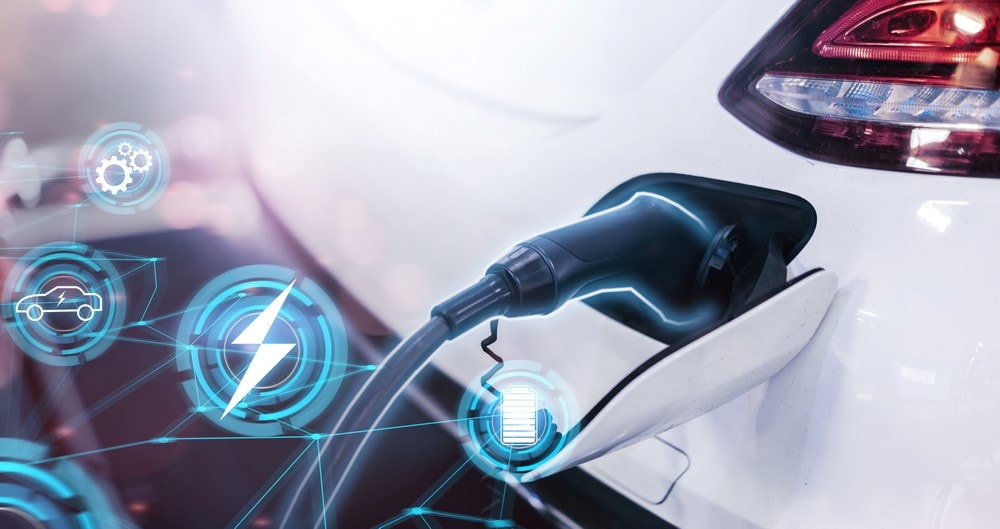
If you’re going to buy a new or used electric vehicle, you'll need something to charge its battery. Whether that means plugging into a Level 1 standard wall outlet, using an OEM Level 2 EV charger, or frequently visiting a local public DC Fast Charge EV station, the choice is yours and yours alone.
“Whoa. Hold your horses... what did you say?”
We feel your confusion. Electric cars are pretty new, and buying one can be an unfamiliar process. To help you gain a (slightly) better understanding of the EV market before making a decision, we’re offering up a comprehensive guide to EV charging. Get your learnin’ on.
EV Charger Types
Level 1 vs. Level 2 vs. Level 3 Charging
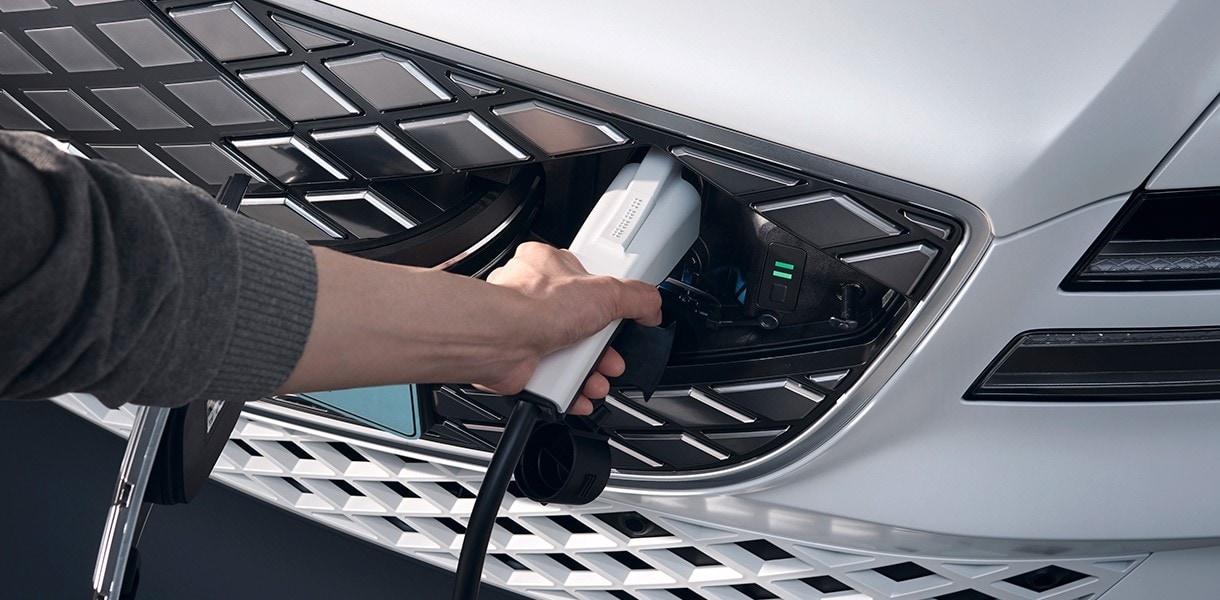
What’s are the differences between these types of EV charging stations?
Level 1 EVSE
This is the most basic and slowest EV charging station. You’d utilize a standard 120V outlet, found in any North American home, to charge your electric vehicle. This offers about 12-16 amps of power, enabling you to gain up to 3-5 miles per hour of charge.Level 2 EVSE
Most EV owners will want to upgrade to a level 2 charger, as they decrease charge time dramatically (up to 20 miles of range per hour of charge). Just like large home appliances, like washers or fridges, level 2 charging stations run at 240 volts and up to 80 amps. These outlets can be installed by electricians easily – just be sure they’re not installing a 220-volt outlet for electric cars, as they may not be compatible.Level 3 EVSE
Commonly known as DC Fast chargers, Level 3 EVSE stations are usually found at public locations. (Plans are in place to install at least 4 DCFC locations every 50 miles.) Because they utilize up to 480 volts and 125 amps (DC) – both are uncommon in residences – they are much more expensive to install. Expect a full charge in under 60 minutes.EV Plug Types
Just like smartphones and devices, electric car plugs aren’t universal (though that may be changing thanks to the Open Charge Point Protocol). As such, not every EV charge station will work with every EV charging connector type. Essentially, your electric car charging cable must have the right plug at both ends, otherwise it’s a literal no-go.Currently – no pun intended – there are four main types of EV connector types (excluding expensive Tesma Supercharger ports):
J1772 (J-Plug/Type 1)
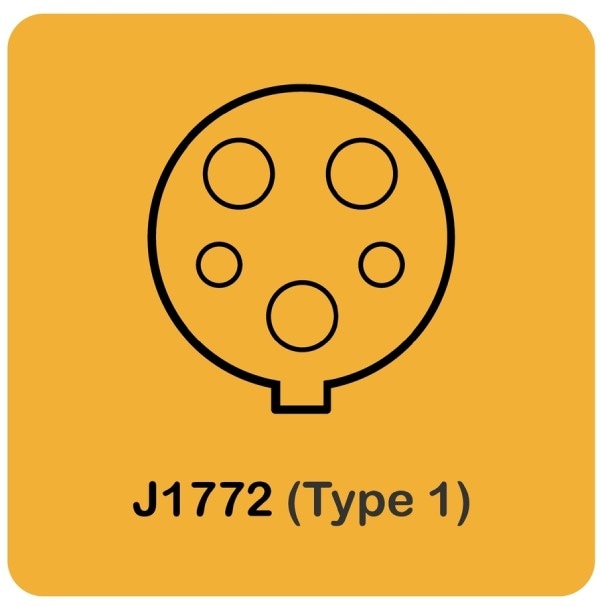
For AC (alternating current) outlets, J1772, or J-Plug, is the most common electric car plug type. It is a single-phase plug.
The Level 1 charging rate for the J-Plug is typically 7.4 kW, though this varies by vehicle. For example, charging capacity for the all-new Genesis GV60 is 11 kW. The GV60 also comes with a Vehicle to Load (V2L) feature that supports 3.6-kW charging of electronic devices and even other EVs – all through the GV60 connector cable.
J-Plugs can also be used in Level 2 applications, with an appropriate 240V station and electric car charging outlet.
Mennekes (Type 2)

Triple-phase Type 2 plugs allow more current (up to 43 kW) to run through EV charging cords, which enables faster EV charging times. Mennekes electric car charger plugs are standard in Europe but less utilized in America.
CHAdeMO

The original DC Fast Charging (DCFC) plug, CHAdeMO, has become largely obsolete since 2010, though some older Japanese EVs still use them. These EV chargers are limited to about 50 kW, but recent CHAdeMO technology has allowed for charging up to 400 kW.
CCS (Type 1 and Type 2)


CCS, or Combined Charging System connectors, allow for both AC (Level 1 and Level 2) and DC (Level 3) charging through one EV charging cable. It’s the most popular public EV charging plug type in America, as it can provide anywhere from 7.2 kW to 350 kW of power.
As you can see, it’s important to choose not just the best EV chargers based on reviews, but rather the best electric car charger that works with your specific vehicle.
EV Charger Price
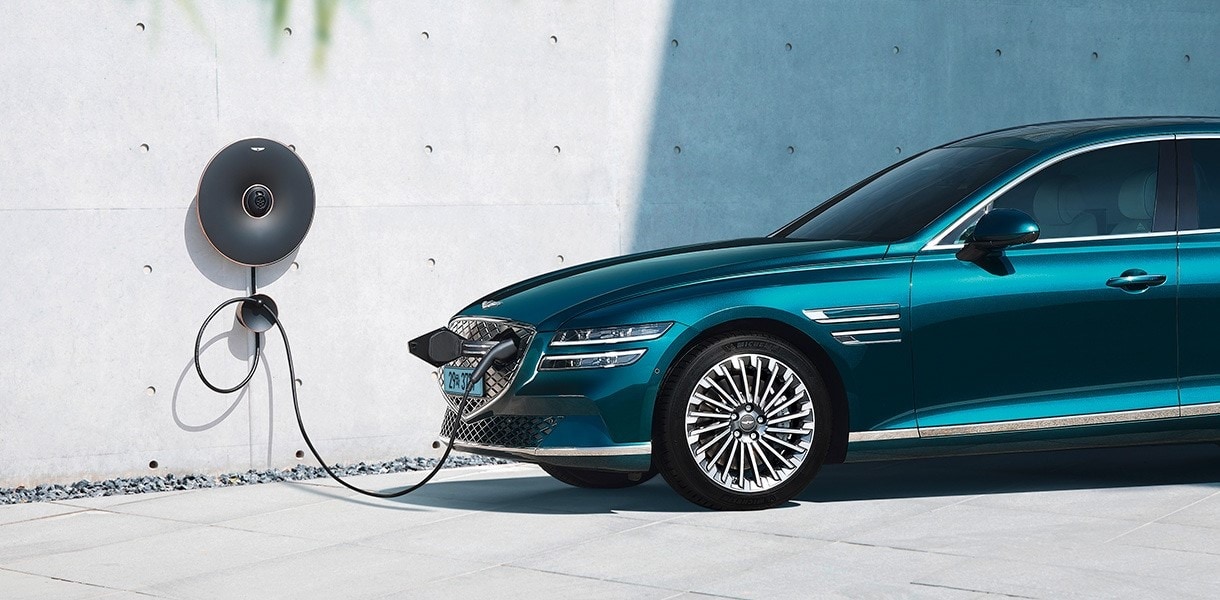
Although charging overnight with a Level 1 charging cord is good enough for most drivers, many EV owners will want to upgrade to a 240V wall EV charging unit. But what’s the cost of getting an EV charging station for your home?
The best home EV chargers (Level 2) will cost anywhere from $300 to over $1,500, excluding state rebates or discounts from your utility company. (Click here to find EV charger incentives.) We recommend going with an OEM EV charger whenever possible – they may even come with the electric vehicle.
However, if you choose an aftermarket EVSE product, some of the top EV charging companies and best Level 2 EV chargers to look into include:
EV Charger Installation Costs
In addition to purchasing your EV charging station, you should factor in EV charger installation costs, which will fluctuate by location and type of installation.- Typical plug-in installation of a wall charger, using a 240V outlet for an electric car, can be more expensive, though it offers two key advantages: It’s easier to repair and offers more portability. It’s not advised to install plug-in connectors on exterior walls, however, and you must pay for or already have a 240V outlet.
- Hardwired EVSE equipment is, as you’d expect, wired directly into the walls and cannot be moved easily. However, it can be cheaper to hardwire an EV charger and can be installed outside.
Electric Car Charging Speed
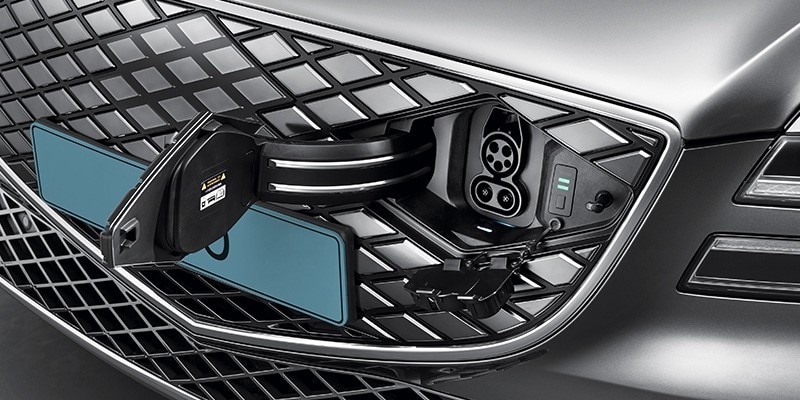
How long does it take to charge an electric car at home? Ten years ago, the answer would have been “too long.” That’s not the case anymore, as you can usually charge an electric vehicle overnight with the fastest home EV charger (Level II).
When you’re away from home, plugging in at a public DC Fast (or Level III) EV charger will usually get you up to 80% in less than 30 minutes. For instance, connecting the new Genesis GV60 to an 800V/350kW DC Fast Charge station will boost its battery from 10% to 80% in only 18 minutes (60 miles of range every 5 minutes). Best of all, your new Genesis comes with free public charging credits. Road trips in an electric vehicle have never been easier.
Reserve Your Genesis GV60 EV Today
Ready to take the plunge? Contact our EV dealership in Miami to learn more about the all-new, all-electric Genesis GV60 SUV. With an EPA-estimated range of 248 miles and a full suite of technology, this is the future of luxury EVs.
Call Braman Genesis at (786) 574-3093 to receive a quote for and reserve a GV60 or any other Genesis electric car today. Our luxury auto dealership serves the entire South Florida region, including Miami Beach, Aventura, Coral Gables and beyond.